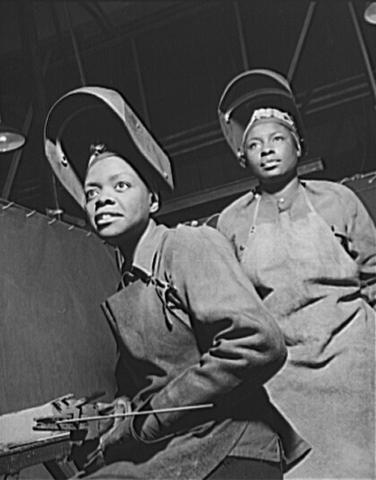
Description
African-American women faced extra hurdles to employment in defense industries until Executive Order 8802, which banned discrimination in the job sector. Even after this order was issued, African Americans faced discrimination and segregation in accessing opportunities and in doing their part for the country. Prior to the war, domestic work was typically where many African-American women could find work. However, a shift was seen that by 1944, the number of African Americans working in domestic service decreased by 15.3 percent and employment in defense work increased by 11.5 percent. This photograph shows two African-American women welders working presumably in the defense industry in June 1943.
Source-Dependent Questions
- How are the women in this photo portrayed in a similar or different manner than the woman working on the B-25 bomber?
- What type of obstacles would African-American women face in this type of industry as compared to the women working in Clinton, Iowa? How does that make these women's contributions to the war effort more significant?
Citation Information
Parks, Gordon, "New Britain, Connecticut. Women welders at the Landers, Frary, and Clark plant," June 1943. Courtesy of Library of Congress